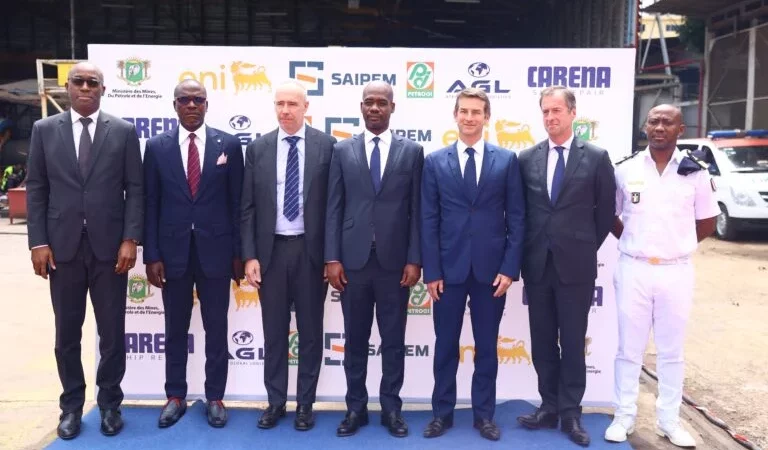Regional Maritime University (RMU) Collaborates with Sierra Leone for Self-Sufficient Seafarer Training
In a significant stride towards enhancing domestic maritime capabilities, the Vice Chancellor of the Regional Maritime University (RMU), Prof. Jethro W. Brooks, is on a productive visit to Sierra Leone to sign a Memorandum of Understanding (MoU) with the Sierra Leone Maritime Administration. This MoU will mark a pivotal moment as it paves the way for the domestication of the Standards of Training, Certification, and Watchkeeping for Seafarers (STCW) convention, enabling Sierra Leone to independently train its own seafarers.
The RMU’s partnership with Sierra Leone will hold the promise of transforming the nation’s maritime landscape by fostering self-sufficiency in seafarer training. The domestication of the STCW convention aligns with international maritime standards while empowering Sierra Leone to tailor training programs to its unique needs and challenges. This collaboration will not only reduce dependency on foreign training institutions but will also contribute to the growth of the nation’s maritime industry and economy.
Under the terms of the MoU, the RMU will provide crucial support to Sierra Leone in developing a comprehensive framework for STCW implementation. This encompasses curriculum design, faculty training, infrastructure development, and quality assurance processes. The aim is to establish a robust and internationally recognized seafarer training system within Sierra Leone, ensuring that maritime professionals receive training of the highest caliber.
Sierra Leone’s commitment to nurturing its own seafarers is expected to yield multifaceted benefits. The nation can expect a surge in employment opportunities for its citizens in the maritime sector, a reduction in the costs associated with training abroad, and the establishment of a skilled workforce that adheres to global maritime safety and operational standards.
The RMU’s role as a guiding partner in this collaboration reflects its reputation as a leader in maritime education and training in the subregion. With its wealth of experience and expertise, the university is poised to assist Sierra Leone in building a sustainable framework that not only empowers seafarers but also elevates the nation’s maritime standing on the global stage.
In conclusion, the partnership between the Regional Maritime University and Sierra Leone Maritime Administration represents a proactive step towards self-sufficiency and excellence in maritime training. By domesticating the STCW convention, Sierra Leone is taking control of its maritime destiny, cultivating skilled seafarers, and positioning itself for increased participation and recognition within the international maritime community.
Source: Public Relations Department, Sierra Leone Maritime Administration




